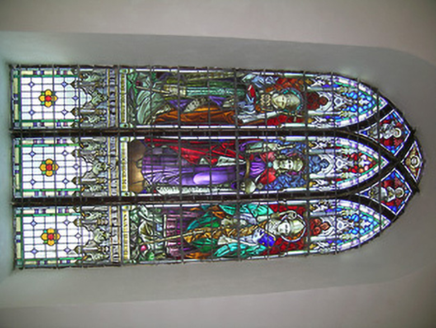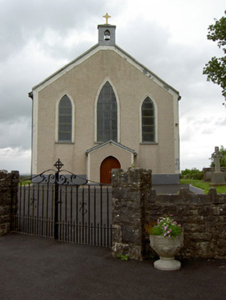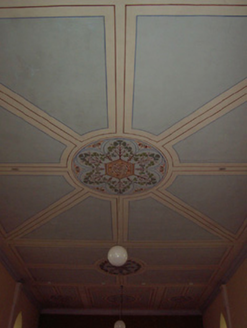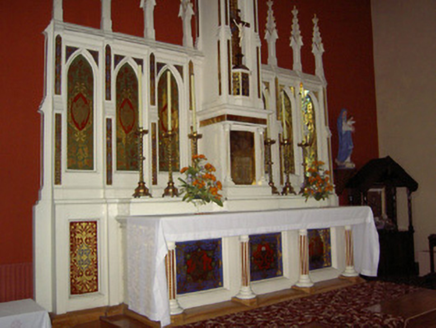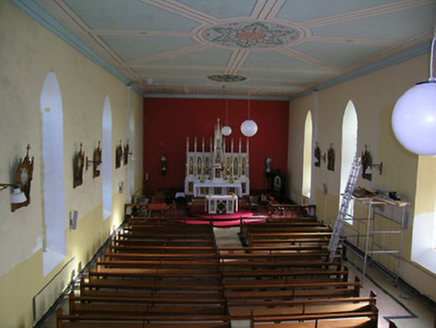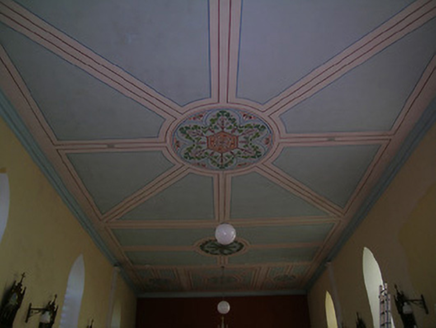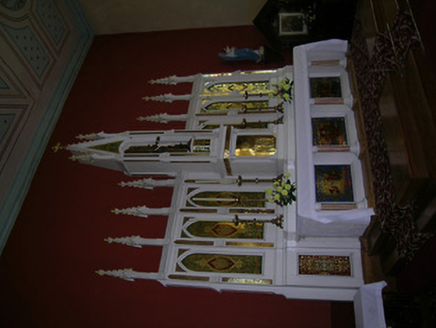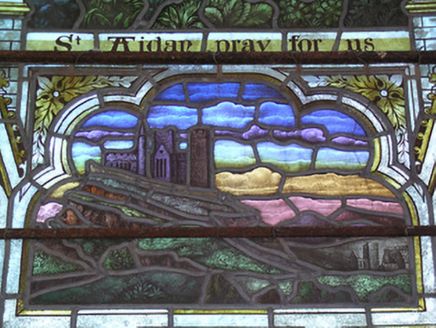Survey Data
Reg No
22205921
Rating
Regional
Categories of Special Interest
Architectural, Artistic, Social
Original Use
Church/chapel
In Use As
Church/chapel
Date
1840 - 1850
Coordinates
195876, 137338
Date Recorded
06/07/2005
Date Updated
--/--/--
Description
Freestanding gable-fronted Roman Catholic church, built c. 1845, with four-bay nave, gable-fronted entrance porch and single-bay two-storey sacristy having porch extension to rear. Pitched slate roof with replacement uPVC rainwater goods, painted cut limestone bellcote surmounted by cast-iron cross to gable-front, with cast-iron cross to east gable. Pitched artificial slate roof to entrance porch. Pebbledashed walls with smooth rendered eaves course and plinth. Pointed arch windows having painted stone sills, moulded render surrounds and stained glass windows. Pointed arch windows to sacristy with some timber sash windows. Pointed arch door opening to porch with double-leaf timber battened doors. Doorway to church proper has slightly pointed elliptical head and moulded surround. Flat decorative painted plaster ceiling to interior. Ornate carved marble altar and reredos, latter having pilasters with crocketed pinnacles separating painted inset panels. Carved timber altar rails and carved limestone baptismal font and limestone pilasters defining boundary of chancel and nave. Timber screen wall to entrance end of nave. Lawned area with some graves to site. Castellated roughly coursed dressed limestone boundary walls and piers with double-leaf cast-iron gates. Graveyard to north-west of site with random rubble limestone walls, having stile and cast-iron pedestrian gate with carved stone holy water font.
Appraisal
This simple church occupies a prominent position at the main crossroads in the village of Kilfeakle. Its reredos and stained-glass windows contribute significant artistic interest to the building. The graveyard to the north-west of the site contains the grave of Seán Treacy, a central figure in the War of Independence, as well as a cut-stone font moved here from his homeland in 1970. The church and its accompanying graveyard form an interesting group of religious sites in the village.
